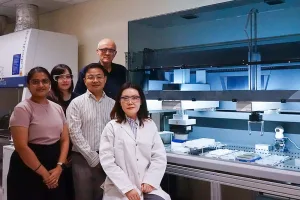Personalized Brain Stimulation Shows Promise for Depression Treatment
A new study from UCLA Health suggests that a refined approach to electric brain stimulation could offer a more effective and quicker path to recovery for individuals battling moderate to severe depression. This personalized method appears to outperform existing similar treatments.
Understanding the New Approach
Traditional electric brain stimulation techniques have shown some success in treating depression, but this new method takes a more precise and tailored approach. By personalizing the stimulation, researchers believe they can target the specific areas of the brain that are most affected by depression.
Key Features of the Personalized Approach:
- Precision Targeting: Focuses on specific brain regions linked to depression.
- Individualized Treatment: Tailored to the unique needs of each patient.
- Faster Results: Aims to provide quicker relief compared to standard treatments.
Why This Matters
Depression is a widespread and debilitating condition, and finding more effective treatments is crucial. This study offers hope for those who haven’t found relief through traditional methods. The promise of a faster recovery time is also a significant advantage, as it could reduce the overall burden of the illness on individuals and healthcare systems.
Potential Benefits:
- Improved treatment outcomes
- Shorter recovery periods
- Reduced side effects
Future Research
While the results of the UCLA Health study are promising, further research is needed to fully understand the potential of this personalized brain stimulation technique. Larger clinical trials will help to confirm its effectiveness and identify the best ways to implement it in clinical practice.
Final Overview
The UCLA Health study introduces a potentially groundbreaking advancement in the treatment of depression. By personalizing electric brain stimulation, researchers hope to offer a more effective and faster path to recovery for individuals struggling with this challenging condition. The initial findings are encouraging, paving the way for future research and potential implementation in clinical settings.




+ There are no comments
Add yours